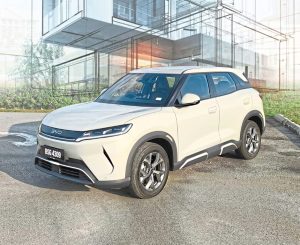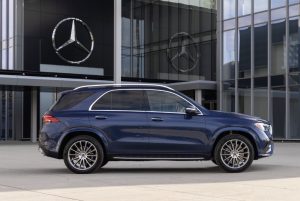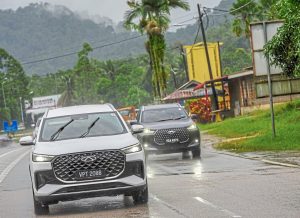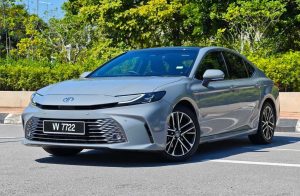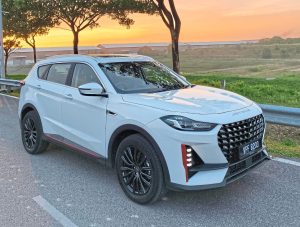DALLAS: The Toyota Camry, a long-standing leader in the sedan market, is set to maintain its dominance with the introduction of the 2025 model, now exclusively offered as a hybrid.
This shift comes after 22 years of success in the US, attributed to the vehicle's aesthetic appeal, reliability, and quality construction. The ninth-generation Camry combines a sleek, athletic exterior with a redesigned interior and advanced technology features.
At the heart of the 2025 Camry is the fifth-generation Toyota Hybrid System (THS 5), paired with a 2.5-litre, 4-cylinder engine. This setup offers a standard 225 net-combined horsepower for the Front-Wheel Drive (FWD) versions and 232 horsepower for models equipped with Electronic On-Demand All-Wheel Drive (AWD).

The hybrid system is noted for its fuel efficiency, boasting a manufacturer-estimated 4.6 l/100km on the LE FWD model, making it both powerful and economical.
For the first time, the Camry offers the option of Electronic On-Demand AWD across all its grades—LE, SE, XLE, and XSE. This feature uses a rear electric motor to provide additional traction as needed, enhancing the vehicle's handling and stability in various driving conditions, such as adverse weather or dynamic driving scenarios.
Toyota has set the starting price for the 2025 Camry at US$28,400 (RM136,000), which is slightly lower than its predecessor, despite the inclusion of more standard features. However, this price does not include a US$1,095 (RM5,239) processing and handling fee, and prices are subject to change.

The THS 5 system in the Camry has been engineered for improved performance and a more natural acceleration feel. It achieves this by optimising power distribution from the lithium-ion traction battery to the electric motor generator, reducing sudden spikes in engine revs during acceleration.
The vehicle also features an electronically controlled Continuous Variable Transmission (eCVT) that adjusts the gear ratio based on throttle input to maximize fuel efficiency.
The 2025 Camry is designed to offer balanced handling and comfort. It features a retuned suspension system that enhances responsiveness and stability, particularly in the SE and XSE grades, which are equipped with sport-tuned suspensions. Additionally, the braking system has been upgraded to provide better controllability and feel.


Aesthetically, the new Camry sports a modern design developed by Toyota’s CALTY design studios in Newport Beach, California, and Ann Arbor, Michigan.
The design includes a distinctive hammerhead front face, a signature element in recent Toyota models.
The vehicle is available in several colours, including new shades like Ocean Gem and Heavy Metal, with certain models offering a two-tone option.
Inside, the Camry showcases high-quality materials and a modern design across all grades. The SE and XSE grades feature sporty accents and advanced materials like SofTex for seats, while the XLE introduces a mix of leather and Dinamica microfibre.

All models come with enhanced seat comfort and multiple customization options to adjust the driving experience through selectable driving modes.
Technologically, the Camry is equipped with a new Toyota Audio Multimedia System, offering a standard 8-inch and an optional 12.3-inch touchscreen display.
It supports wireless Apple CarPlay and Android Auto, and includes multiple USB ports for device connectivity. Advanced features such as a Wi-Fi Connect trial, Drive Connect, and Intelligent Assistant are available, enhancing connectivity and convenience.

Safety features are comprehensive in the new Camry, with Toyota Safety Sense (TSS) 3.0 standard across all models.
This suite includes a pre-collision system with pedestrian detection, dynamic radar cruise control, lane departure alert with steering assist, and more.
Additional safety features include blind spot monitoring, rear cross-traffic alert, and proactive driving assist, providing a robust safety framework for the driver and passengers.
Four grades are offered in the United States with prices ranging from US$28,400 to US$36,125 (RM173,000).
As to why Toyota decided to drop the 4-cylinder petrol and V6 engines and focus only on the hybrid, Camry’s chief engineer Mark DeJongh told Motor1 publication that it was "just the right vehicle at the right time."
"We really think the customers are going to embrace it. The fuel economy is so great, and we knew with the new (Toyota) Hybrid System 5, we really had an opportunity to tune that drivetrain and get it to where it could be great.”


















